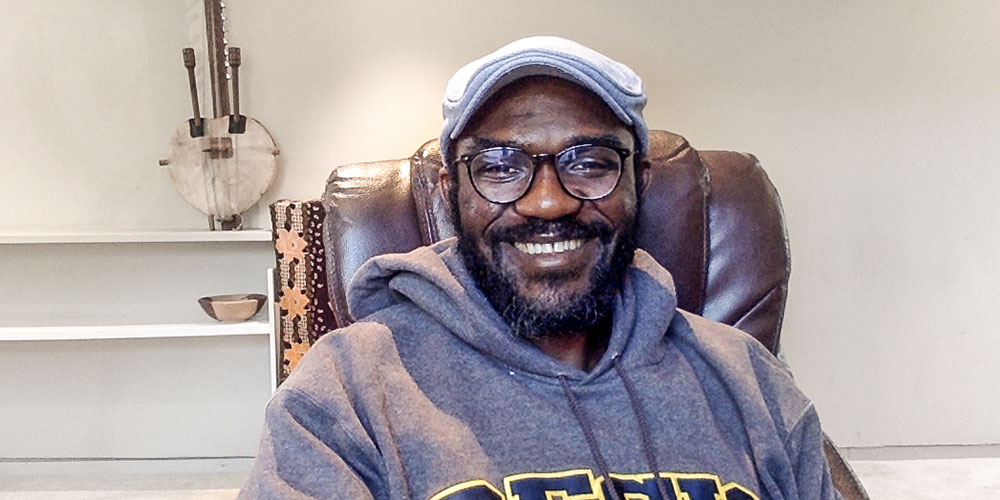On being human in Africa.
Text: Divine Fuh
Divine Fuh completed his doctorate at the University of Basel from 2005 until 2009 at the Institute of Social Anthropology and Center for African Studies. Today, he is director of the Institute for Humanities in Africa (HUMA) at the University of Cape Town.
I am a social anthropologist and currently the director of HUMA, the Institute for Humanities in Africa at the University of Cape Town in South Africa. I have held this position since January 2020, when I returned from a three-year stint at the Council for the Development of Social Science Research in Africa (Codesria), one of Africa’s leading social science research organizations.
HUMA was founded in 2010 to position the humanities as a central hub for critical thinking about the rapid dynamics of South African society. As director, I have made it my mission to build a global institute at this world-class university in Africa, with feminist approaches as part of the organizing principle. We are particularly interested in exploring ethical issues that frame the question of being human in Africa and being African in the world, and that also underpin our ethics toward others. We are a truly diverse institute with a team from across the African continent and around the world.
Some of our current projects include the Future Hospital project and the Knowledge Activism project to strengthen African scientific publishing. The former initiative, Future Hospital and AI, is fascinating because it looks at the ethics of artificial intelligence and imagines the future of care and hospitals. Our knowledge activism initiative addresses
the challenges facing Africa’s knowledge ecosystem, with the goal of strengthening the publishing infrastructure. Another example is the Feminist Alternatives for ( post-) COVID-19 Engagements (FACE) project in Africa. It addresses the attacks on women and feminist expressive spaces as a result of lockdowns.
In Cape Town, I get to experience one of the most beautiful, complex, sophisticated, and cosmopolitan cities in the world. However, South Africa is also a place of contradictions, revolutions and aspirations. I grew up in one of those contradictions, Cameroon. I was born in the heartland of a radical decolonization movement in Batcham, the same place where a brutal massacre of revolutionaries and the community that hosted them occurred in the 1970s. I lived through the protests of the 1980s, the hardships of the economic crisis and structural adjustment and the upheavals of the 1990s triggered by demands for multiparty democracy. Today, this place of my childhood dreams and memories is mired in conflicts caused by a combination of factors. At its core are, among other things, social abandonment, neglect by the state and the government’s inability or unwillingness to fulfill the social contract. That my work also focuses in particular on the politics of suffering and smiling is no coincidence.
Divine Fuh is director of the Institute for Humanities in Africa (HUMA) at the University of Cape Town. He completed his doctorate at the University of Basel from 2005 until 2009 at the Institute of Social Anthropology and Center for African Studies.
More articles in the current issue of UNI NOVA.

